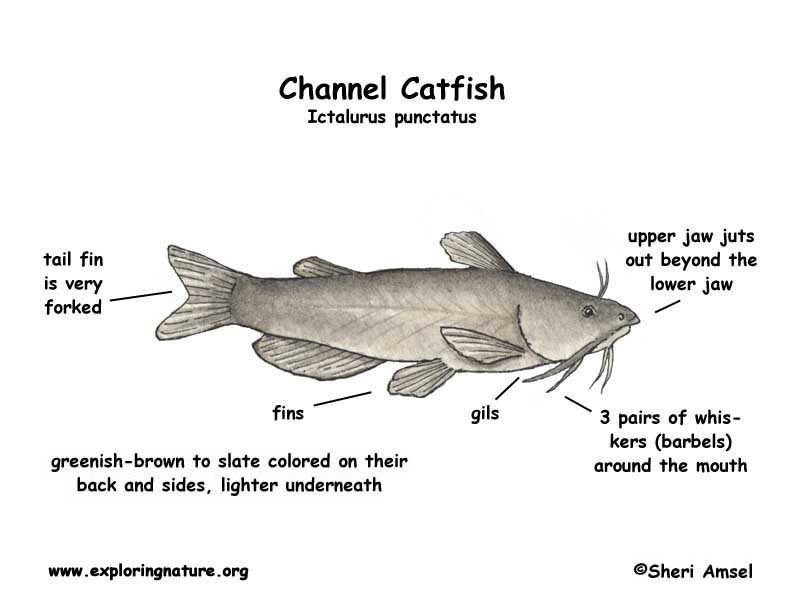

They are found throughout the U.S. now, though were introduced west of the Rocky mountains. They can be found all the way south into Mexico.
They live in rivers, and large streams with slow to medium flow of water.
They weigh about 2 - 4 pounds, though can weigh much more at times. They are greenish-brown to slate colored on their back and sides, lighter underneath and tiny black spotting. Their tail fin is very forked. Their upper jaw juts out beyond the lower jaw. They have 3 pairs of whiskers (barbels) around the mouth that act as sense organs.
They have a very good sense of smell and taste.
They eat plants, insects, mollusks, crustaceans, and other fish.
Males find a safe nest sites under a log, rock or river bank and females lay eggs in a yellow glob. Males guard the nest. They hatch in about a week and for another week stay in the nest guarded by the male.
Kingdom: Animalia
Phylum: Chordata
Subphylum: Vertebrata
Class: Actinopterygii
Order: Siluriformes
Family: Ictaluridae
Genus: Ictalurus
Species: I. punctatus
When you research information you must cite the reference. Citing for websites is different from citing from books, magazines and periodicals. The style of citing shown here is from the MLA Style Citations (Modern Language Association).
When citing a WEBSITE the general format is as follows.
Author Last Name, First Name(s). "Title: Subtitle of Part of Web Page, if appropriate." Title: Subtitle: Section of Page if appropriate. Sponsoring/Publishing Agency, If Given. Additional significant descriptive information. Date of Electronic Publication or other Date, such as Last Updated. Day Month Year of access < URL >.
Amsel, Sheri. "Catfish (Channel)" Exploring Nature Educational Resource ©2005-2024. December 14, 2024
< http://www.exploringnature.org/db/view/Catfish-Channel >

